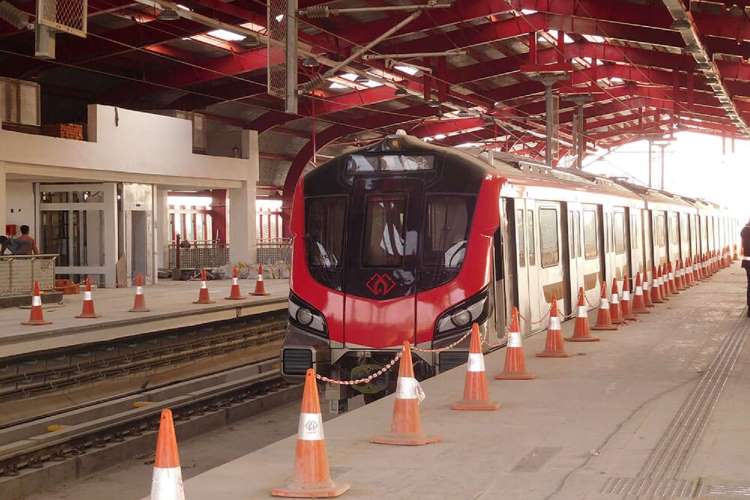
Budget 2023: Urbanisation is central to economic and social development of a society. Cities in India occupy just 3% of the country’s land area, but contribute 60% of the gross domestic product. The Union government is focused on improving the urban infrastructure with enhanced funding and more autonomy to cities for planning and executing urban development projects.
Many of the government flagship schemes have given good results. These include building of 112.52 lakh houses under Pradhan Mantri Awas Yojana-Urban (PMAY-U); allocation of over Rs 2.05 lakh crore under the Smart Cities Mission; (c) Rs 4.4 lakh crore spending under AMRUT 2.0 and Swachh Bharat Mission covering all statutory towns; and (d) Rs 3.6 lakh crore funding for Jal Jeevan Mission under “Har Ghar Jal” programme.
The World Bank estimates that India needs invest $840 billion (Rs 67 lakh crore) over the next 15 years or $55 billion per annum in urban infrastructure. The estimates clearly indicate that the funding from the government can primarily act as a catalyst and substantial funding will also be required to be undertaken by state and city governments as well as the private sector.
READ I Bottom-up thinking powers India’s urban transformation: Sanjeev Sanyal
Budget 2023: An agenda for urban infrastructure
In order to achieve high infrastructure funding and ensure private sector participation, the ongoing reforms need to be further strengthened. Some of the key priorities may include:
Strengthening urban infrastructure including digital infrastructure: The government should continue to spend aggressively on strengthening urban infrastructure projects in water supply, sewerage, drainage, solid waste management, housing, and urban transportation with a focus on innovative financing. Further, adequate attention should be given to develop urban digital infrastructure.
Successful integration of smart technologies with urban infrastructure in 100 cities under Smart Cities Mission may now be replicated in other cities. Integrated Command and Control Center (ICCC) along with other smart solutions developed by various cities may be rolled out as a service module, thus minimising capital expenditure. Creating cloud-based shared digital infrastructure will help smaller urban local bodies to get access and leverage digital infrastructure.
READ I India must learn from China’s Covid-19 management fiasco
Innovative financing: Urban infrastructure requirement is evolving rapidly with the advent of technological innovations and increasing demands for investments beyond conventional urban infrastructure projects. State urban financial intermediaries leveraging pooled finance structures like TNUDF and KUIDFC have operationalised separate financing channels for PPP, infrastructure bonds, and value-capture finance to fund urban infrastructure. Additionally, new age infrastructure projects which contribute toward climate resilience are eligible for carbon credits, climate/ green financing bonds, subsidised debt, and mezzanine instruments.
Cities should be encouraged and incentivised to explore these channels rather than solely relying on government funds for the infrastructure projects. The World Bank has also recommended developing of investment support units to focus on urban infrastructure, leveraging innovative financing. Further, in line with municipal performance index/ ease of living index, city finance ranking is an innovative idea which can be implemented. It will enable cities to benchmark themselves with other cities and learn from good practices and experiences. Additional performance-based funding may be given to cities on improvement in such ranking.
Organisational capacity: In addition to innovative financing mechanisms, city administrations need to augment their capacity for managing and delivering new age urban infrastructure and technology projects. The complexity of the projects requires capabilities in areas of project appraisal, project management, contracting, procurement, monitoring and evaluation, and risk management. The city administration also needs to augment their capabilities around understanding and using ICT technologies such as blockchain and artificial intelligence and enabling data governance and management practices for facilitating technology innovations.
MoHUA has already invested in various capacity building tools like NULP and iGOT Karmayogi platform. These digital platforms democratise the access of capacity building resources for the entire city administration staff across the cities of the country. These tools and platforms need to be further scaled and investments are required for content curation, course development, certifications, and testing, among others. Additionally, there is a need for setting up of a dedicated municipal cadre for staffing positions with specific competencies.
Institutional ecosystem: The model of urban development in Indian cities will need to become more decentralised. In order to achieve the extent of decentralisation, the cities will need to develop and leverage an ecosystem and resources within the city. This will include partnerships with start-ups, corporations, civil society, academia, and research institutions. The cities will need to build processes for seamless data sharing, innovation, and collaboration. Cities like Pune and Surat are already building data exchanges, city data alliances, and organising hackathons to crowdsource innovations through partnerships and collaborations.
The budget 2023 should focus on laying down a long-term roadmap for meeting the urban infrastructure requirements for the next 15 years and also incentivise cities to meet part of the cost through innovative financing /financing through their own sources.
(Debashish Biswas is Partner and Vivek Mittal is Executive Director at Deloitte Touche Tohmatsu India LLP.)

